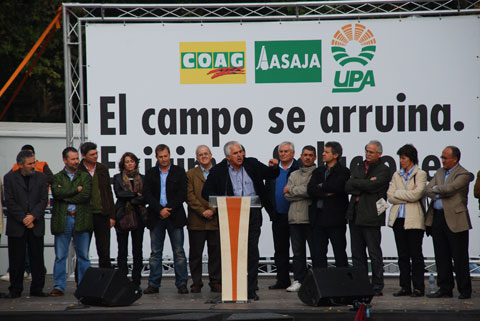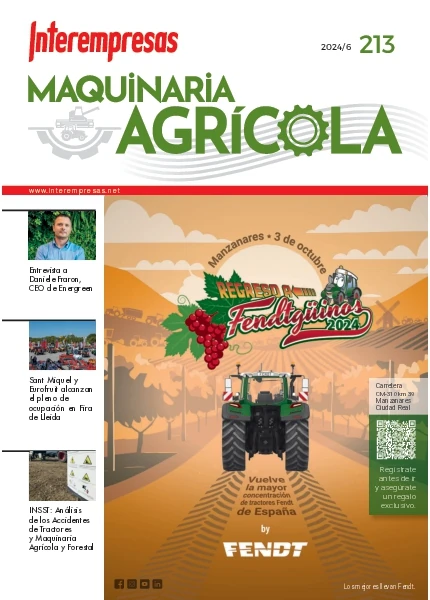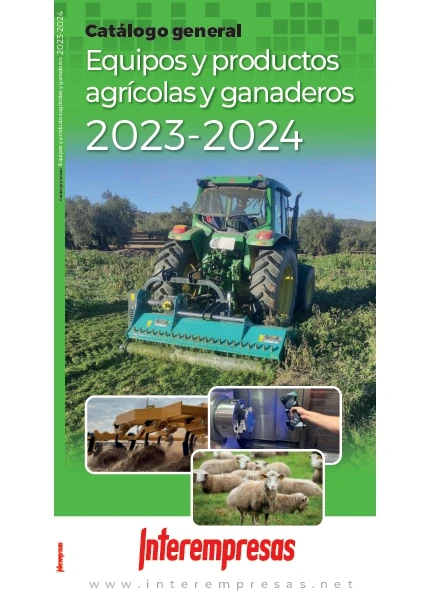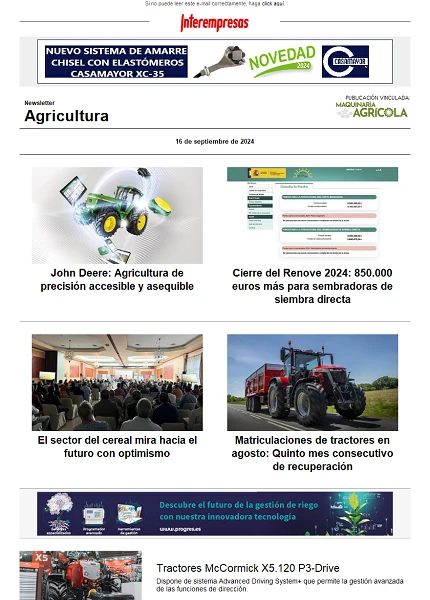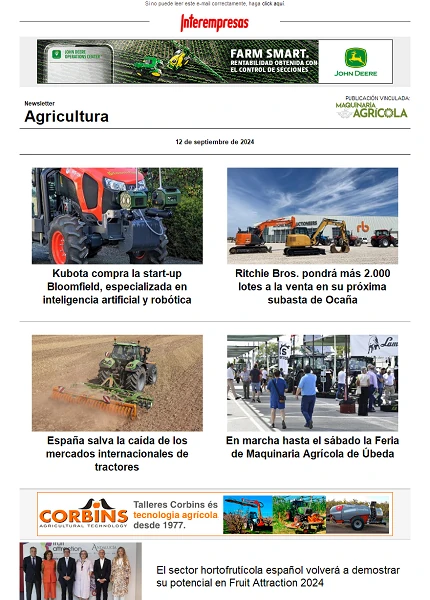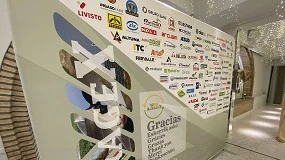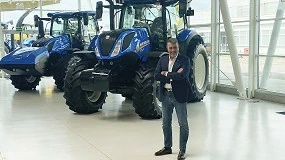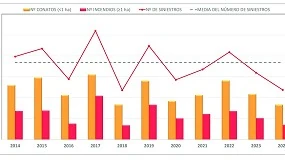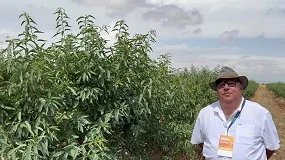El campo se echa a la calle
24 de noviembre de 2009
Centenares de miles de agricultores de toda España participaron el día 21 de noviembre en Madrid en la manifestación convocada por las tres grandes organizaciones agrícolas de ámbito estatal, en demanda de soluciones para lo que consideran “la mayor crisis” del campo español. “Por primera vez en este país, el campo se ha unido de verdad, porque estamos afrontando la peor crisis de nuestra historia”, dijo el secretario general de Coag, Miguel López. La asistencia desbordó a los organizadores, que habían previsto la llegada de unos 100.000 productores a Madrid, cifra que se quedó pequeña ante la masiva asistencia.
Los convocantes de la manifestación pidieron al gobierno que enfoque los problemas del sector “como una cuestión de Estado”; a las comunidades autónomas, “que arrimen el hombro”; y a los partidos políticos, que aparquen sus diferencias políticas y les defiendan. El motivo que llevó a la jornada de paro del día anterior, 20 de noviembre, en todo el país y a la manifestación de Madrid, es la intensa caída de la renta de los agricultores. Los datos oficiales muestran un descenso del 26% de la renta agraria en los cinco últimos años, resultado de un fuerte incremento de los costes (del 34,3%) y de una caída de los precios, provocando una pérdida de 124.000 empleos en el sector.

El presidente de Asaja, Pedro Barato, pidió al presidente del Gobierno que se tome en serio el sector y le ayude económicamente “tal y como lo han hecho con el del automóvil, la banca y la construcción”. “No pedimos dinero —añadió el secretario general de UPA, Lorenzo Ramos—, solo leyes que permitan que el dinero que están pagando los consumidores se reparta de forma justa, y no a favor de las grandes superficies, que se están forrando”, criticó.
Lo que más enerva a agricultores y ganaderos es la fuerte diferencia existente entre los precios que ellos perciben y los que el comercio cobra a los consumidores. Sobre todo, acusan a las grandes superficies y a su capacidad de imponer acuerdos a agricultores e intermediarios. Por eso reclaman una ley de contratos tipo para permitir que se puedan definir entre las partes interesadas precios mínimos de compra de los productos ligados a costes medios de producción.
También reclaman una nueva regulación de las relaciones comerciales y los plazos de pago, así como un plan de financiación del sector y de refinanciación de sus deudas, con nuevas líneas del Instituto de Crédito Oficial (ICO). La manifestación transcurrió en un ambiente festivo, exento de incidentes, con lemas en sus pancartas como ‘El campo se arruina, exigimos soluciones’ o ‘Políticos, estamos en vuestras manos’.
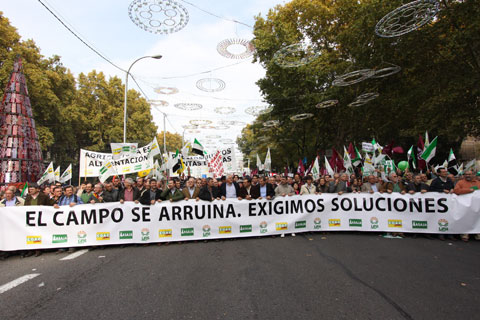
Manifiesto leído tras la manifestación del 21-N en Madrid
“El campo se arruina: exigimos soluciones”
En la sociedad española del siglo XXI, cerca de un millón de hombres y mujeres formamos parte de la población activa dedicada a la agricultura y la ganadería, que suponen más de 43.000 millones de euros de producción final. La industria agroalimentaria genera en España 360.000 puestos de trabajo (14% de los puestos de trabajo del sector industrial). Su volumen de ventas supone el 17% del total de las ventas de la industria española. La agricultura con la agroindustria es la segunda actividad económica del país, después del turismo.
Los agricultores y ganaderos somos parte activa y decisiva en las más de 3.500 cooperativas agrarias que hay en España, generando valor añadido a nuestros productos y motor económico de las zonas rurales. En un país de larga tradición rural como España, el progreso hacia una sociedad cada vez más moderna y avanzada debe garantizar el respeto y apoyo hacia los más de 7.000 municipios rurales, que ocupan el 80% del territorio y acogen al 25% de la población, más de 10 millones de personas.
Estamos aquí para defender que la agricultura y ganadería somos un sector estratégico para España. Estamos convocados aquí por nuestras organizaciones agrarias (Asaja, Coag y Upa), a las que se han sumado nuestras cooperativas agroalimentarias y nuestras comunidades de regantes, dando un ejemplo de unidad y responsabilidad en unos momentos tan difíciles para todos vosotros.
Las tres organizaciones agrarias del campo español habéis sido capaces de unir vuestras fuerzas porque es más lo que os une que lo que os separa. Agradecemos sinceramente las innumerables adhesiones que hemos recibido, que nos han desbordado y abrumado: asociaciones, ayuntamientos, empresas privadas, ciudadanos anónimos, etc. Muchas gracias a todos.
¿Por qué estamos aquí?
Sencillamente porque nuestras explotaciones agropecuarias se están arruinando por falta de rentabilidad, en una situación sin precedentes en la que todos nuestros sectores de producción se encuentran en crisis. Esta grave situación tiene su origen en una profunda crisis de mercado con precios de nuestros productos hundidos y costes de producción disparados.
En los últimos cinco años (2003-2008), la renta agraria real total se ha derrumbado un 26% y hemos perdido 124.000 empleos, que no hay que olvidar que son amigos, vecinos nuestros, con rostro, con nombre. Paralelamente, el descenso de precios en origen es cada vez más generalizado y acuciante. La gran distribución alimentaria presiona a la cadena agroalimentaria imponiendo sus condiciones e impidiendo el normal funcionamiento del mercado. Su posición de dominio expulsa a los agricultores y sus cooperativas de este canal de comercialización que se está convirtiendo cada vez más, en el único canal existente, no en vano el 82% de las compras se realizan ya a través de él.
Tenemos que explicar a los ciudadanos que por lo que cuesta un café en Madrid a vosotros os pueden comprar: 3 kilos de melocotones, 12 de sandías, 15 de patatas, 6,5 de uvas o 5 litros de leche. ¿Qué os parece? ¿Quienes de vosotros podéis producir como pretende la distribución, las naranjas a 13 pesetas el kilo o el aceite a 260 pesetas el litro. Porque nosotros seguimos vendiendo en pesetas. Claro y esto sabiendo que habéis sufrido un incremento espectacular de los costes de la producción agraria, un 34,3%.
La Política Agraria Común (PAC)
En materia de PAC, el apoyo público comunitario que llega a nuestras explotaciones pierde peso relativo año tras año. Al recorte del 10% acumulado tras la última reforma de la PAC en las ayudas compensatorias hay que añadir la no actualización con arreglo al IPC, lo que significa una caída del 56% en 15 años. La desaparición de los mecanismos de intervención y la no aplicación del principio básico de preferencia comunitaria contenido en los tratados de la UE suponen un desmantelamiento de los mecanismos de regulación de mercado que dejan a un sector estratégico expuesto a importaciones masivas sin control de calidad y seguridad alimentaria y una gran volatilidad en precios y costes.
Porque queremos resaltar que la alimentación es el aspecto más estratégico para una sociedad y que producir alimentos es el cometido clave que tenemos encomendado como agricultores y ganaderos. Este servicio estratégico es de interés para el conjunto de la población, especialmente en un escenario tan difícil a nivel mundial que hace prever la llegada de nuevas crisis alimentarias. Sólo una PAC fuerte puede evitar este riesgo.
Todo lo anterior nos lleva a una situación ruinosa. Es injusto e insostenible que el precio de nuestros productos esté por debajo de los costes de producción.
¿Qué estamos reclamando?
Un futuro para la agricultura, para los hombres y mujeres que dedicamos nuestra vida a esta actividad. Para ello pedimos:
1. Precios justos para nuestros productos y regulación de los mercados agrarios.
2. Mayor transparencia en los precios de los insumos agrarios (abono, electricidad, gasóleo, fitosanitarios, plásticos, piensos...) y revisión del marco regulatorio de la electricidad para las explotaciones agrarias.
3. Una fiscalidad adecuada:
• incremento del IVA compensatorio al sector ganadero
• aplicación del IVA reducido a los insumos agrarios
• puesta en marcha de un gasóleo profesional exento de impuestos, tal como permite la UE
4. Es necesario un plan de financiación y refinanciación del sector agrario.
5. Establecimiento de una PAC sólida más allá del 2013 con un presupuesto actualizado.
6. Hay que establecer un verdadero plan de apoyo a las energías renovables que tenga una de sus bases en el sector agrario.
7. Apoyo decidido al sector agrícola y ganadero de cara a la adaptación a las consecuencias derivadas del cambio climático.
8. Puesta en marcha de un plan de concentración de la oferta e integración cooperativa, que permita evolucionar hacia un modelo de cooperativismo dimensionado y competitivo.
Debemos reiterar a las tres administraciones competentes (europea, estatal y autonómica) que la crisis de la agricultura debe considerarse como un problema de Estado y las soluciones también como una cuestión de Estado. No es el momento de tirarse los trastos de una a otra, sino de tomar ejemplo del sector y trabajar todos juntos a una.
A la sociedad queremos transmitir que todos y cada uno de los ciudadanos hemos de ser conscientes, para no consentir la pérdida de nuestra agricultura y ganadería que comprometería gravemente la seguridad alimentaria, que es la primera necesidad de la población. Y nosotros, debemos mantener el ánimo y la voluntad de lucha porque no cabe duda que la agricultura tiene un claro y largo futuro, como base de la alimentación. ¡Ahora más que nunca, como reza ese viejo pero a la vez actual lema, debemos gritar con fuerza: ‘¡Sin agricultura nada!’ y ‘¡El campo es el futuro y el futuro está en nuestras manos!’
